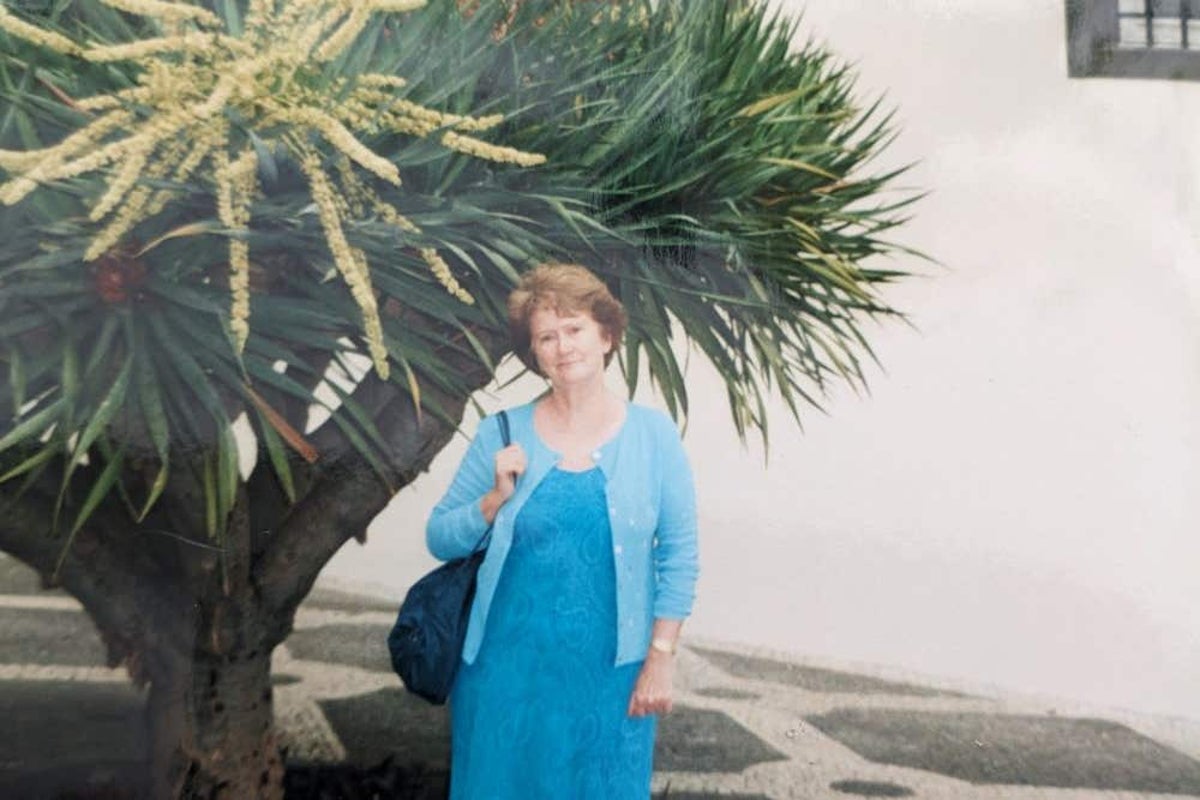
A much-loved pensioner suffered a “horrific” death from an operable brain tumour after doctors failed to properly monitor her scan results, her husband has said.
An investigation by the Parliamentary and Health Service Ombudsman (PHSO) has found that Glasgow-born May Ashford, who was 71 when she died in 2015, was not offered surgery until it was too late as medical staff failed to monitor her scan results properly and did not report significant findings.
Mrs Ashford, who lived near Blackpool, was diagnosed with a brain tumour in 2010 at the Royal Preston Hospital after suffering headaches and seizures.
Despite regular MRI scans showing the tumour was growing and was pushing her brain to one side, she was told that it was not growing and was not offered surgery to remove it until May 2015.
Independent medical specialists told the Ombudsman that Mrs Ashford should have been offered surgery three years earlier.
The tumour grew and affected the surrounding area of the brain, making it more likely that she could be injured or die following surgery.
Mrs Ashford died from a stroke in 2015 after her surgery.
Her husband Alan Ashford, now aged 73, told the PA news agency: “It was horrific. They just left the tumour to consume her.”
He added: “I blame myself because I just trusted him (the doctor).
“At the end of the day, she was effectively slowly dying over a four-and-a-half year period. She was dying before my eyes if you like and I had no idea.”
The couple had met in 1971, before getting married in 1979 and moving to Blackpool to start a family which includes three children, a granddaughter and a one year-old great granddaughter whom Mrs Ashford never got to meet.
Mr Ashford said his wife suffered from depression and “that created problems but she was a nice and kind person” who was “very caring”.
He added that she was reluctant to have the operation, fearing that she may not survive.
He said: “When they offered her the operation in early March 2015, she was confused. She didn’t want the operation.
“She said to me ‘there is no point in having the operation – I won’t survive it’. She said that on numerous occasions.
“She went into the operation, and as far as I’m concerned, she was not hopeful and 99% certain that she was going to die – and she did. She never regained consciousness.
“All of that is horrific. I listened to him for years telling me it (the tumour) is not growing.”
He recalled: “A friend said to me ‘did you not notice she was getting worse? I said yes but put it down to the medication she was on and the anti-depressants.”
Concerns about his wife’s care led Mr Ashford to lodge a complaint with the Ombudsman who says the case emphasises the need for urgent improvements to imaging practices in the NHS.
This tragic case highlights why we have been calling for imaging improvements to be treated as an urgent issue of patient safety.— Ombudsman Rob Behrens
Ombudsman Rob Behrens said: “This tragic case highlights why we have been calling for imaging improvements to be treated as an urgent issue of patient safety.
“Our casework shows that, sadly, Mrs Ashford is not the only person who lost her life because of mistakes related to scans and X-rays.
“Timely analysis and reporting of scans is fundamental to the diagnosis and management of many health conditions.
“The sooner we see changes made, the fewer people we will see harmed by these entirely avoidable failings.”
The Ombudsman’s 2021 report on NHS imaging highlighted repeated failings such as those found in Mrs Ashford’s case.
PHSO led a call alongside NHS England and the Royal College of Radiologists to urge the Government to prioritise improvements to the way scans and X-rays are carried out and reported on.
The PHSO says there has been an effort across the NHS to implement the Ombudsman’s recommendations since then but progress has been slow.
Mr Ashford added: “Thanks to the Ombudsman’s meticulous report, new rules regarding the monitoring of patients have been implemented by the hospital to ensure that this cannot happen again to anyone else.
“My wife suffered horribly from the effects of the tumour for more than four years, and it was obvious to the family and myself when reading the scan reports that the monitoring of her tumour was highly suspect.
“The tumour should have been removed before it came into contact with the carotid artery.
“The fact that it was not is a complete mystery to us.
“We have no idea why the consultant concerned acted in the way that they did, and as we have never been offered an explanation, we have no closure.”
A Lancashire Teaching Hospitals spokesman said: “As a Trust we acknowledge the findings of the Parliamentary and Health Service Ombudsman report relating to the care of Mrs Ashford and have offered our unreserved apologies to Mr Ashford.
“A detailed action plan was provided to Mr Ashford in November 2022 describing the measures that have taken place following the PHSO investigation to ensure that other patients and their families do not have a similar experience.”







